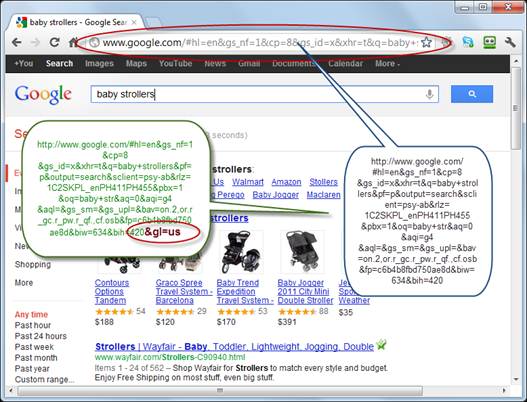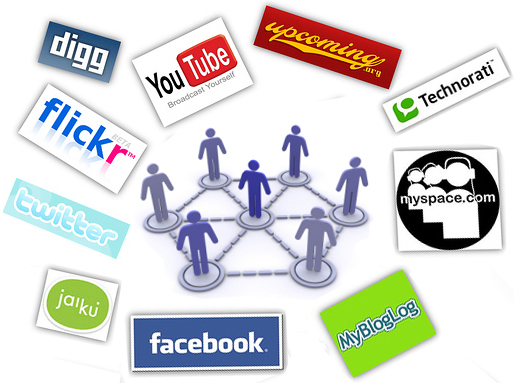The internet increasingly shows us
only what it thinks we want to see. Jim Martin investigates what's happening,
and what you can do about it
Before the internet existed, our main
sources of current affairs information were newspapers and I TV broadcasts. We
read and saw only what the editors decided we should, and our view of the world
was shaped by this information. If a story was deemed not newsworthy, it
wouldn’t be reported on.
The internet changed all that. There were
no editors, so information became freely available: all you had to do was
search for it. However, the increasingly personalised nature of search results
now means you won’t necessarily get the same view of the world as everyone
else.

The
Personalised Internet
Algorithms and filters use data about you,
such as your location, age, gender and preferences, to deliver search results
they think you'll want to see. But is this a good thing?
In some cases, it may be exactly what you
want. Social networks such as Facebook filter out the stuff you would have
skipped over and let you quickly digest updates from close friends. However,
since all this personalisation is largely invisible, how do you know what
you’re missing out on? Can an algorithm be trusted to make the right choices
about the information you see?
Here, we look at what's happening and
explain some of the steps you can take to avoid or disable these filters.
You’d be forgiven for thinking that a
Google search for a particular word or phrase would return the same results,
regardless of user. That’s far from the case, though, and rightly so. If you
search for ‘passport application’ in the UK, you want to find only information
that relates to applying for a UK passport. Google uses your location data and
tailors its results to provide the information it thinks is the most relevant.
This has been happening on a country- or
continent-basis for years, but the algorithm has recently been updated. Today,
it isn’t only your location that search engines use to filter results; your
search history, contacts, the browser and type of computer you’re using are all
factored in. While the change in results is usually subtle, some search terms
produce radically different information.

Google
uses your location data and tailors its results to provide the information it
thinks is the most relevant
Take the two screenshots at the top of this
page as an example. Both depict Google searches for the same query - 'Jim
Martin’ - and were taken at the same time. The difference here is that the
first search was conducted in London, and the second in Sydney. Both top the
list with a Wikipedia entry for ’Faith No More' guitarist Jim Martin, and offer
the same set of images (in a different order, note). The remaining results are
very different. It’s clear which is the Australian search, but the UK search is
filled with US- rather than UK-based results.
You don’t need to be signed into a Google
account to see personalised results, although you’ll see a more radical change
if you are. As we explained in last issue’s Ultimate Guide to Google
(tinyurl.com/7kspjwr), the search giant’s many services are all connected by a
single Google account. Some of its services net Google more personal
information than others; its Google+ network bags it the most.
Thanks to Google's social network, it has
as much information on you as you care to reveal. All kinds of useful data can
be gleaned from your status updates, the links and videos you deem worthy of
sharing, and the photos you upload. Google knows exactly what makes you tick;
as such, it can prioritise certain sites over others in your search results.
If this comes as something of a revelation,
you might decide to stop using Google. But what do you use instead? Yahoo,
Microsoft Bing and just about every other search engine provide personalised
results, and gather the data that enables them to do so in much the same way.
Yahoo's engine has an element of human input, however.
The problem with personalised search is few
people realise that automatic filtering is taking place: there's no warning
message and no obvious way to opt out. You’re no longer in the driving seat for
your online experience, and you may not even know it.
Some people argue that it’s a form of
censoring, while others - including the father of the internet, Sir Tim
Berners-Lee - believe it presents a twisted view of the world.
Social networks
This is especially true of Facebook, which
has filtered its News Feed for a while now. It intends to put the information
you want at your fingertips, so what's the big deal?
Facebook uses an algorithm called EdgeRank,
which decides what's shown in your News Feed. If you're a long-term user of the
social network, you'll have noticed when EdgeRank was introduced (and likely
been confused or upset by the change). Rather than presenting a chronological
list of status updates, the News Feed now offers ‘important’ posts at the top
of the page.

Social
networks
Without getting into the technical details,
the algorithm attempts to calculate what you want to read about. It looks at
who you interact with the most and puts their posts up high in your News Feed.
It also tries to figure out what you'll want to see from the people with whom
you don't regularly engage, such as family members or brands you've 'Liked'.
This is all well and good, but it doesn't
encourage you to maintain friendships: the people with whom you don’t regularly
interact tend to disappear from view, so you won't be prompted to get in touch.
To appreciate how much filtering is taking
place, browse your friends list and see how many of them appear in your News
Feed. Chances are it's only a fraction of the total. Naturally, there will be
some people who rarely update their status, but it will still be obvious if
you're not seeing the full picture.
Even Twitter has been accused of filtering,
since its trends pander to a supposed user obsession with what's new rather
than what's important. Twitter also tailors search results in the name of
making it easier to "get a sense of what's happening right now, wherever
your curiosity takes you". But rather than enabling you to discover
things, personalisation tends to do the opposite and prevents you seeing new
things.
Filtering also affects online advertising.
It can be unnerving when you realise you're looking at adverts for a product
you searched for on Amazon last week. It's clever, but perhaps you'd prefer to
see an alternative product you weren't aware existed.